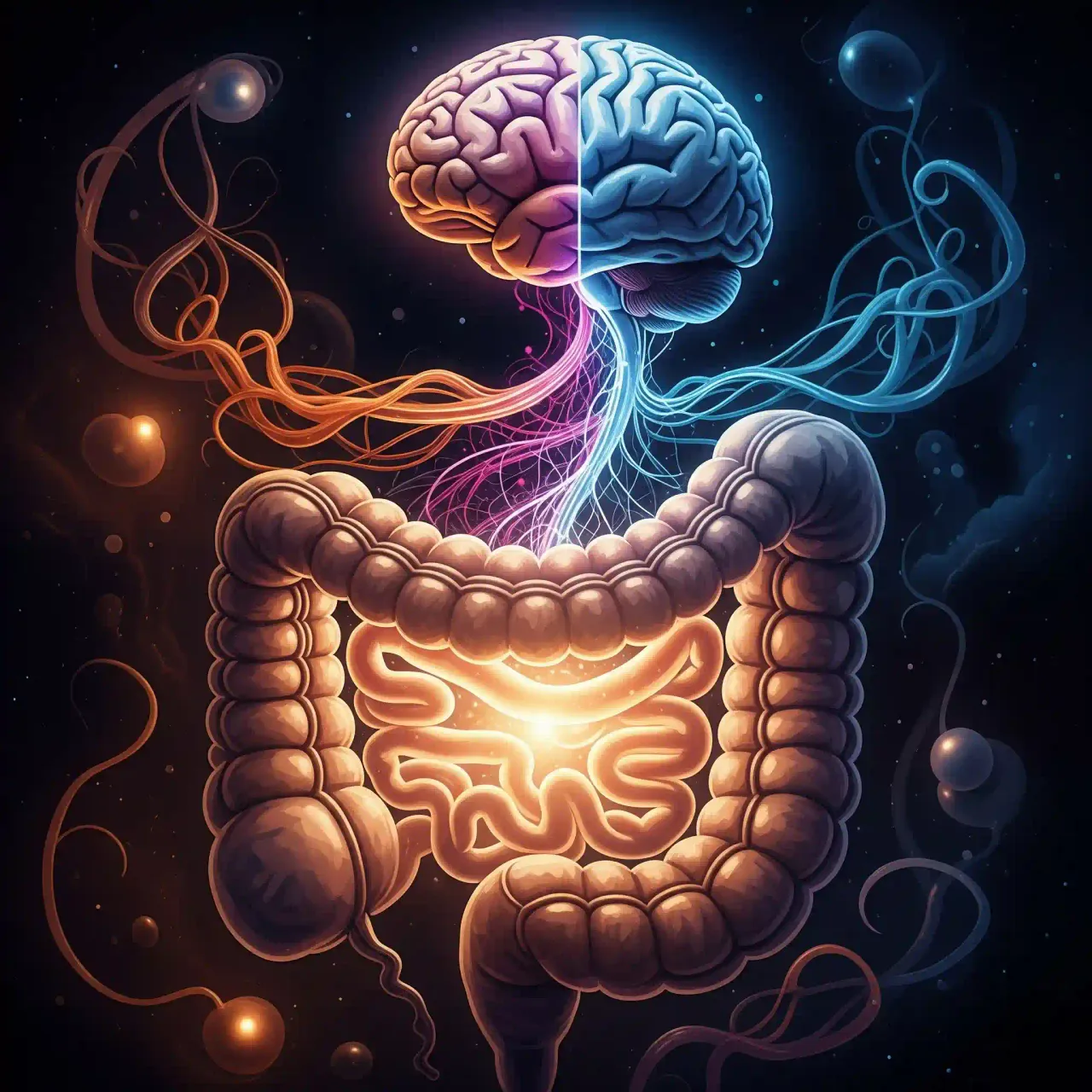Your Second Brain: What your gut knows before you do
Scientists are learning how closely our digestive system is linked to our emotions and choices as their understanding of the gut's impact on our mind expands.

Your Second Brain: What your gut knows before you do
Have you ever had a sudden surge of anxiety prior to making a significant decision, or a sick feeling when things didn’t feel quite right? These feelings represent the body’s method of communicating with the mind; they are not merely peculiarities of emotion. Scientists are learning how closely our digestive system is linked to our emotions and choices as their understanding of the gut’s impact on our mind expands. These “gut feelings” are not merely a lyrical metaphor; rather, they are a part of a potent biological dialogue that takes place inside of us on a daily basis.
The Gut-Brain Axis: A crash course
The subject of this fascinating discussion is the gut-brain axis, an intricate two-way communication network connecting your brain and digestive system. The vagus nerve, the longest nerve of your cranial region, is the superhighway of this network, carrying and delivering messages between your brainstem and gut organs. Not only does it issue orders, but your stomach’s constant chatter dictates your thoughts, feelings, and reactions to the outside world.
The concept of the enteric nervous system, which is often called the “second brain,” adds another layer to this story. Through the walls of your gut, this intricate network of over 100 million nerve cells i.e. as many as in a cat’s brain—enables your stomach to think for itself and stays in touch with your central nervous system at all times. While the enteric nervous system regulates digestion, it plays a much greater role because it generates as much as 95% of the body’s serotonin, an essential neurotransmitter that helps regulate mood, here instead of in the brain. Gut health can thus significantly influence our moods and even our manner of making decisions on a daily basis.
Adlerian Psychology meets the gut
The interconnectedness of body and mind has also been posited by psychology itself. Early 20th-century psychologist Alfred Adler popularized the theme of holism by emphasizing the intimate relationship between our mind, emotions, and body sensations. As per Adlerian theory, gut feelings are our body’s feedback system that warns us about situations which validate or invalidate our personal sense of purpose; they are not cryptic or irrational. Your body might be sending you a message in regards to your values or direction when you get that queasy stomach feeling when faced with a major life choice, and it is not necessarily an easy situation of nervousness. Adler would argue that failure to observe these cues will lead to disconnection between our actions and what matters to us.
When gut feelings are misleading
That being said, it might not always be in our best interest listening to every stomach flutter. Indeed, gut feelings can be utterly wrong, especially if anxiety or stress is what triggered them. Getting ‘anxious discomfort’ mixed up with an ‘intuitive feeling’ is expected because both can feel like that uncomfortable knot in your stomach, or rather an uncomfortable feeling. The art of fine tuning to genuine gut instinct often involves the bravery to figure out how to differentiate between intuition and fleeing from it. Adler placed a high value on courage: trusting ourselves despite doubting our fears, instead of fleeing from them. Genuine gut instincts emerge more clearly, steadily, and quietly, whereas anxiety has more whirlybird-like characteristics, which are typically frantic, in circles, and leave us bewildered.
How to tell the difference
It is not a magical gift, but one that can be honed through intent and a sense of self. Practices such as slow, mindful breathing have been shown to quiet the vagus nerve and soothe an overstimulated gut-brain loop, making it easier to distinguish helpful signals from worried noise. Writing down body sensations can help transform bodily experiences into meaningful psychological understandings especially in situations that make you feel insecure or uncertain. Even un-distracted eating, as plain as it is, can start to rebuild faith in the body’s internal signals, re-establishing courteous communication between your brain and your “second brain.” And, naturally, a diet rich in fermented foods, fibers, and whole grains can feed a healthier microbial crowd, which researchers now associate with more lucid thinking and emotional stability.
Tuning into your gut wisdom
Finally, listening to your gut is about building a collaboration between body and mind. Adlerian philosophy positions self-direction in a balance of inner courage and faith in yourself. By cultivating a sense of knowing your gut’s messages—not something to be followed blindly or ignored completely, but as a source of knowledge specifically structured to you—you assume authority to negotiate life’s challenges with increased wisdom and coherence.
So next time you get a stillness in your stomach, take it for more than a fleeting feeling. It could be your second brain, gently prodding you toward your most authentic way. So what does your gut know today?
Related Posts

Burnout in a broken economy: Why career dreams are collapsing
Sometimes, the weight of carrying a dream slowly becomes the burden that breaks us.

Political anxiety is real: How global conflict is affecting everyday minds
Political anxiety is no fleeting discomfort—it quietly chip away at our mental well-being, leading to burnout, emotional fatigue, and what many experience as high-functioning depression.

Introvert, Extrovert, Ambivert — Labels that may be limiting your mental growth
Here's the catch, all labels feel like a shortcut to knowing yourself, but sometimes they're the quickest path to self-imposed limitation.
